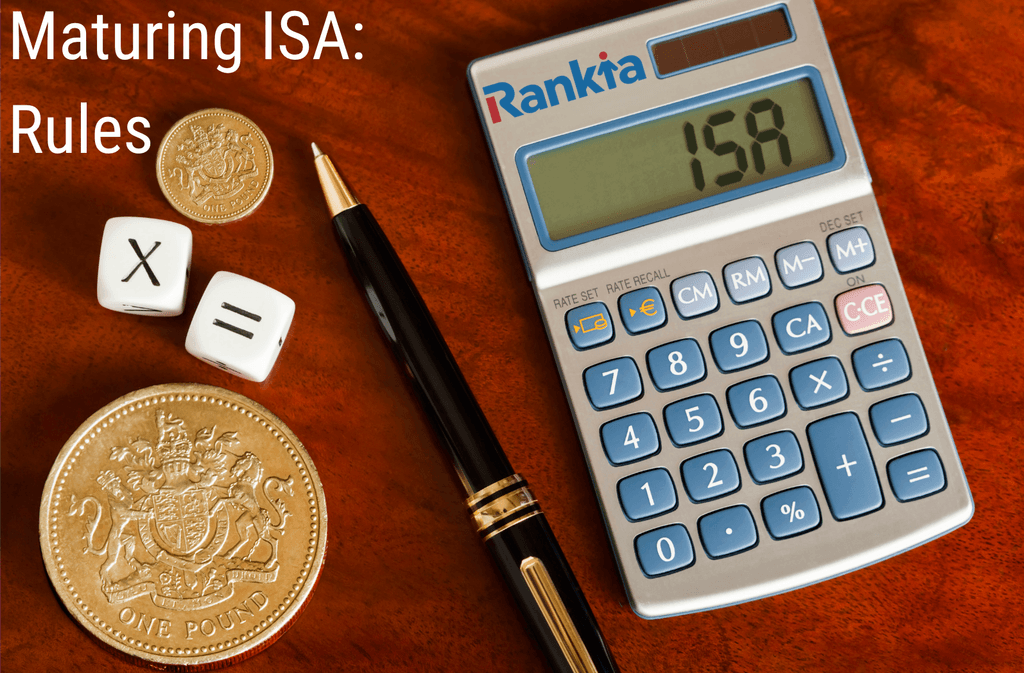ISAs
Maturing ISA rules: What to do when your ISA matures

You’ve locked away your savings, enjoyed some decent interest, and now the time’s up as your ISA’s matured. So… what happens now?

If you’ve ever stared blankly at a letter or email from your bank wondering what happens when your ISA matures, you’re definitely not alone. But whether it’s a cash ISA, a fixed-rate one, or something in between, the end of the term isn’t the end of the road. In fact, it could be the start of something even better if you know your options.
What does it actually mean when an ISA matures?
Firstly, ISA maturity isn’t anything scary, it just means the account you locked your money into has reached its pre-agreed finish line. Most often, this applies to fixed-rate ISAs or fixed-term cash ISAs, where your money’s been earning interest over one, two, or maybe even five years.
Once that time’s up, though, your provider pulls the plug on that fixed interest rate. And unless you take action, your hard-earned cash could drift into a low-paying holding account where it earns next to nothing.
So, if you’re wondering what happens at the end of a fixed rate ISA, the answer is: not much, unless you step in and take the reins.
What happens when a cash ISA matures?
Now, what happens when a cash ISA matures follows a similar story. The fixed term is over, the bank sends you a reminder, and then… you’re at a crossroads.
If you do nothing, your money typically gets dumped into a default variable-rate ISA, usually with a painfully low rate. However, this is also the perfect opportunity for a cash ISA transfer to ISA, allowing you to move your savings into a more competitive account. The end of your ISA’s term can be a moment to rethink, replan, and potentially boost your savings strategy.
What to do when your ISA matures
If you’ve been wondering what to do when your ISA matures, the most important thing is not to leave it sitting around.
You could take the cash and run, withdraw your funds completely and use them however you like. Totally tax-free, of course. But if you’re keen to keep your savings ticking over, now’s the time to look at fresh opportunities.
Maybe your provider’s offering a decent new rate. Maybe they’re not, and in that case, it’s absolutely worth shopping around. You can either stick with the same type of ISA or explore something new. And if you want to move to a different bank, just make sure you do it through the official ISA transfer process, so you don’t accidentally mess up your tax-free status. Likewise with
In short, you’ve got options. And they’re all in your hands.
Reinvesting a maturing ISA
Let’s say your fixed-rate cash ISA has matured. You could lock into another fixed-rate deal (maybe even with a better interest rate), or move it to something more flexible, like a variable-rate ISA.
If you're open to a bit more risk for potentially higher returns, there’s always the best stocks & shares ISA route. Or maybe you’re now eligible for a Lifetime ISA and want to aim that cash at a first home or retirement pot.
Because you're reinvesting existing ISA funds, you're not touching your current tax year's ISA allowance. That means you can reinvest and still put fresh money into a brand new ISA elsewhere.
Don't let your ISA drift into a financial dead zone
Too many people let their ISAs drift after maturity, thinking their provider will just roll them into another great deal. They usually don’t.
Letting it sit could mean your savings slump into a holding account with a shocking rate, sometimes as low as 0.1%. That’s barely enough to outpace inflation, let alone grow your savings.
And if you’re planning to move your money elsewhere, don’t just withdraw it and redeposit it, that breaks the ISA wrapper and could cost you your tax-free benefits. Always use the transfer service offered by your new provider to stay within the rules.
What happens when ISA matures?
When your ISA matures, it’s not the end, it’s your next move that counts. Whether you’re sitting on a matured cash ISA or wrapping up a fixed-term deal, now’s your moment to think smart, act fast, and keep your money working for you.
Knowing what happens when your ISA matures puts you ahead of the curve. And once you understand what to do when your ISA matures, you’re not just protecting your savings; you’re actively growing them.
Check your options, compare rates, and think big. Whether you’re reinvesting a maturing ISA, moving providers, or changing strategies entirely, the next chapter is all yours.
FAQs
Can I add more money to my ISA when it matures?
You can’t add new money to a matured ISA unless it’s still within the same tax year and you haven’t used up your allowance. If the account has fully matured, you’ll need to open a new ISA or reinvest in another product to make additional contributions.
Will I be taxed if I withdraw money after my ISA matures?
No, withdrawals from any type of ISA, even after maturity, remain completely tax-free. That includes all the interest you’ve earned. However, once withdrawn, those funds lose their ISA status unless reinvested through a new ISA using your annual allowance or an official ISA transfer process.
How long do I have to decide what to do after maturity?
Most ISA providers offer a “maturity window” of around 14 to 30 days where you can give new instructions. If you do nothing in that period, the funds may be moved to a default variable-rate ISA. Always check your provider’s specific terms and deadlines in advance.
Can I switch from a cash ISA to a stocks & shares ISA at maturity?
Yes, you can switch between different ISA types, including moving from a cash ISA to a stocks and shares ISA. When considering a stocks and shares ISA vs cash, it's important to weigh the potential for higher returns with stocks against the security and stability of cash ISAs. Just make sure to use the official ISA transfer process, which ensures your money stays tax-free while changing providers or account types, even after your ISA matures.
What happens to interest if I don’t act straight after maturity?
If you leave your ISA alone after it matures, most providers will move your funds to a holding account with a much lower interest rate. While you’ll still earn some interest, it’s usually minimal. Acting quickly ensures you don’t miss out on better rates elsewhere.